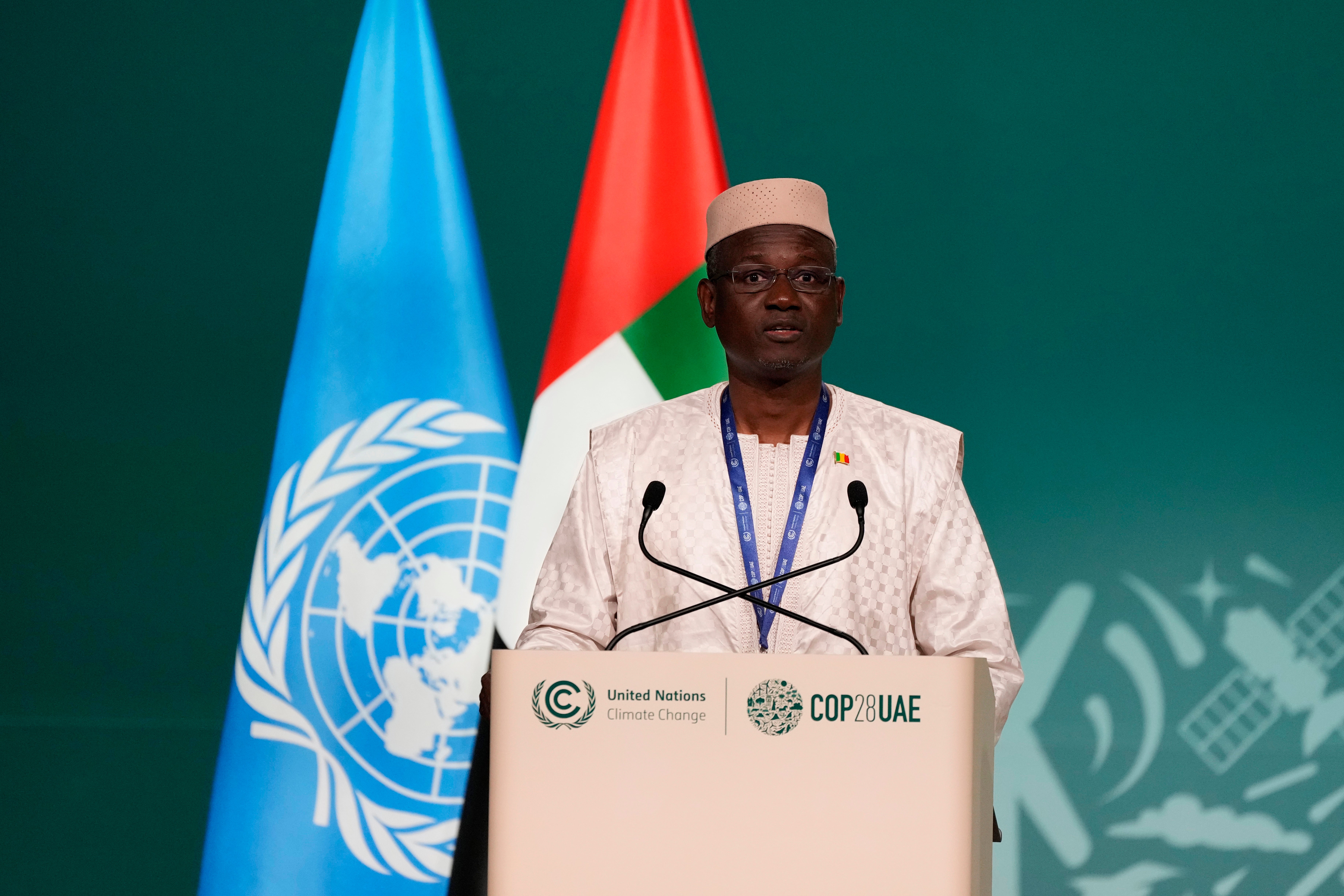Mali ends crucial peace deal with rebels, raising concerns about a possible escalation in violence
Mali’s junta has terminated a crucial agreement with local rebels that helped maintain a fragile peace in the country’s north, raising concerns about a possible escalation in violence

Your support helps us to tell the story
From reproductive rights to climate change to Big Tech, The Independent is on the ground when the story is developing. Whether it's investigating the financials of Elon Musk's pro-Trump PAC or producing our latest documentary, 'The A Word', which shines a light on the American women fighting for reproductive rights, we know how important it is to parse out the facts from the messaging.
At such a critical moment in US history, we need reporters on the ground. Your donation allows us to keep sending journalists to speak to both sides of the story.
The Independent is trusted by Americans across the entire political spectrum. And unlike many other quality news outlets, we choose not to lock Americans out of our reporting and analysis with paywalls. We believe quality journalism should be available to everyone, paid for by those who can afford it.
Your support makes all the difference.Mali’s junta has terminated a crucial agreement with local rebels that helped maintain a fragile peace in the country’s north, the government announced, raising concerns about a possible escalation of violence.
The 2015 peace deal with Tuareg rebel groups is ending “with immediate effect” because the rebels have failed to comply with its terms and because of “acts of hostility” by Algeria, which has been the main mediator in the peace efforts, government spokesperson Col. Abdoulaye Maiga said on state television Thursday night.
Representatives of the rebel group did not immediately comment but Algeria’s Ministry of Foreign Affairs said in a statement that it “deeply regrets” Mali’s decision to end the agreement and denied working against it.
“The Malian people must know that such unfortunate and unwelcome decisions have proven in the past that the military option is the first threat to the unity and territorial integrity of Mali, that it carries within it the seeds of a civil war in Mali, that it differs national reconciliation instead of bringing it closer together and that it finally constitutes a source of real threat to regional peace and stability,” the statement said.
The campaign by the Tuareg rebels to create an independent state of Azawad in northern Mali threw the West African nation into a violent conflict for over a decade. In 2012, they dislodged the Malian military from the town of Kidal, setting into motion a series of events that destabilized the country.
The peace deal backed by Algeria and welcomed by the United Nations reduced hostilities in the northern region before it appeared to collapse last year after both parties accused each other of failing to comply with it. Malian authorities also announced the prosecution of some rebel leaders.
Maiga noted the “absolute inapplicability” of the peace agreement and “the inability of international mediation to ensure that the obligations incumbent on the signatory armed groups are respected.”
Analysts said the formal end of the deal did not come as a surprise following months of tension between the government and the rebel groups and after years in which both sides failed to fulfil its terms. Mali and Algeria have also fallen out over the deal.
The collapse of the agreement comes after the end of a U.N. peacekeeping mission deployed to help contain the rebellion. It also comes as Mali’s military leaders — in power for more than three years — struggle to contain an Islamic extremist insurgency that has ravaged the north since 2012.
“There is a high risk of even the jihadis strengthening their own forces because some of the groups that had signed the agreement may seek to work with the jihadis,” said Shaantanu Shankar, country analyst for Africa at the Economist Intelligence Unit, adding that the junta lacks the capacity to manage the situation.
Mali's military leaders — under pressure to hand over power to civilians — could also be using the announcement “to deviate the public opinion in Mali from the struggles (the) Junta is facing,” according to Rida Lyammouri, a senior fellow at the Policy Center for the New South Moroccan think tank.
“As for accusations against Algeria, the junta has repeatedly blamed others for its internal problems, so this fits its narrative of what’s happening in Mali,” Lyammouri added.